Tags: CoViD-19

There is Still a Lack of PPEs in the Hospitals in the Us

COVID-19 Pandemic Made Children to Regress, Experts Say; Here's What Parents Should Do
More Newborns Have Detectable Levels of COVID-19 Antibodies
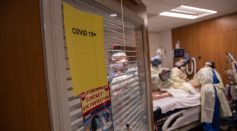
COVID-19 May Cause Devastation Only to Some Due to Autoimmune Diseases, Experts Say

Growing Evidence Suggest COVID-19 Causes Harm to Brain Functions
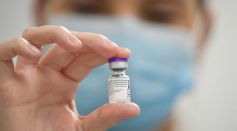
Absence of COVID-19 Vaccine Delivery Plan Could Shake Public Trust
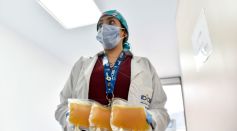
Can Plasma Help Prevent COVID-19 Symptoms? Here's What Experts Say

Scientists Investigate Newly-Discovered Coronavirus Strain in the UK
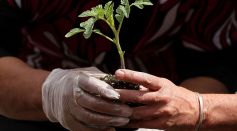
COVID-19 Pandemic Renewed Interest in Gardening and the Outdoors

Discharged COVID-19 Patients Are up To 60% More Likely To Get Sick Again in 10 Days

Children's Adaptive Immune System Seems Key to Beating COVID-19
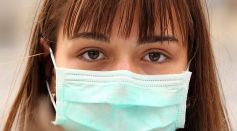
Wrong Mask Can Be Worse Than No Mask, New Airflow Study Says

Sixth-Graders in Maine Turn Their COVID Experience Into a Science Experiment

Australian COVID-19 Vaccine Development Stopped Due to HIV Diagnostic Complication

New COVID Study Shows Arthritis Drug, Baricitinib, Reduces Recovery Time for Adults

Discarded Face Masks and PPEs End Up in Oceans

FDA Outlines Other Possible Side Effects of Pfizer COVID-19 Vaccine

Global Emissions Drop by 7%, But Climate Change Experts Advise Not To Celebrate Just Yet

Louisville Zoo’s NeCee is the Latest Large Cat Confirmed to Have Coronavirus

Inhaled Vaccines Show Effectiveness in Strengthening Immune Response in Mice, Primates
Most Popular

The Air Pollution Climate Link: What Environmental Science Reveals About Our Changing Planet

Solar vs Wind vs Hydro Energy: Which Renewable Energy Is Most Effective Power Source?

Carbon Footprint 101: What It Is and Simple Ways to Reduce Yours

How Satellite Technology and Earth Observation Are Transforming Modern Life





